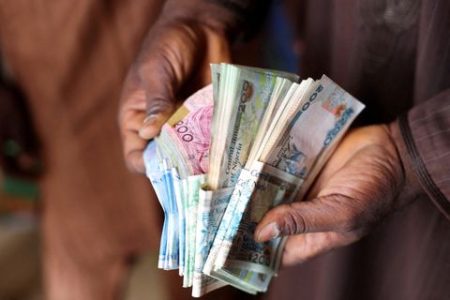 *Removes limit on banks’ forex sale to BDCs
*Removes limit on banks’ forex sale to BDCs
27 January 2014, Lagos – he Central Bank of Nigeria, CBN, has removed the limit of $250,000 that banks can sell to each Bureaus De Change per week.
This move is aimed at addressing the N15 difference between the official and parallel market exchange rates. The official rate closed last week at N155.74 per dollar while the parallel market closed at N171 per dollar.
The removal of the limit was announced by Alhaji Batari Musa, Director, Trade and Exchange department of the CBN, via a circular titled, “Developments in the Foreign Exchange Market: Foreign Exchange sales to Bureaux De Change operators by banks”.
The circular stated, “Further to the Circular ref: TED/FEM/GEN/FPC/01/009 dated September 26, 2013 on the above subject, we write to inform all Authorized Dealers and the general public that the provisions of paragraph (1) of the circular under reference has been reviewed with immediate effect.
Consequently, the limit of $250, OOO.00 as the maximum weekly forex sales to a BDC is hereby removed in order to shore up liquidity in that segment of the foreign exchange market.
Authorised Dealers are therefore free to sell forex to BDCs subject to compliance with the provisions of extant AMUFT laws and regulations in the disbursement of forex.
Furthermore all transactions between Authorised Dealers and BDCs as well as the latter and end-users must be supported with appropriate documentation.In addition, Authorized Dealers and Bureau De Change Operators are to continue to render weekly returns on their transactions to the CBN and other relevant regulatory agencies, failing which, appropriate sanctions, including revocation of operating license shall be imposed.”
Recently, while announcing the decision of the Monetary Policy Committee, MPC, CBN Governor, Mallam Lamido Sanusi expressed concern over the gap between the official and the parallel market exchange rates.
He said, “The Committee noted with satisfaction that the year-on-year headline inflation remained within the indicative target range of 6-9% in the second half of 2013. However, the Committee noted the underlining pressure on core inflation, which may not be unconnected with the widening spread between official and BDC exchange rates.
In order to head off the spectre of rising inflation in 2014, concrete actions will be needed to stabilize the currency and minimize the divergence between the two segments of the foreign exchange market.”
President, Association of Bureaux De Change Operators of Nigeria (ABCON), Alhaji Aminu Gwadabe, however attributed the wide gap to the restrictions on foreign exchange supply in the market.
In an interview with journalists last week, he said the $250,000 limit on banks’ forex sale to BDC and ban on importation of foreign currency are examples of the restrictions causing the divergence between the official exchange rate, and the parallel market rate.
*Babajide Komolafe – Vanguard



